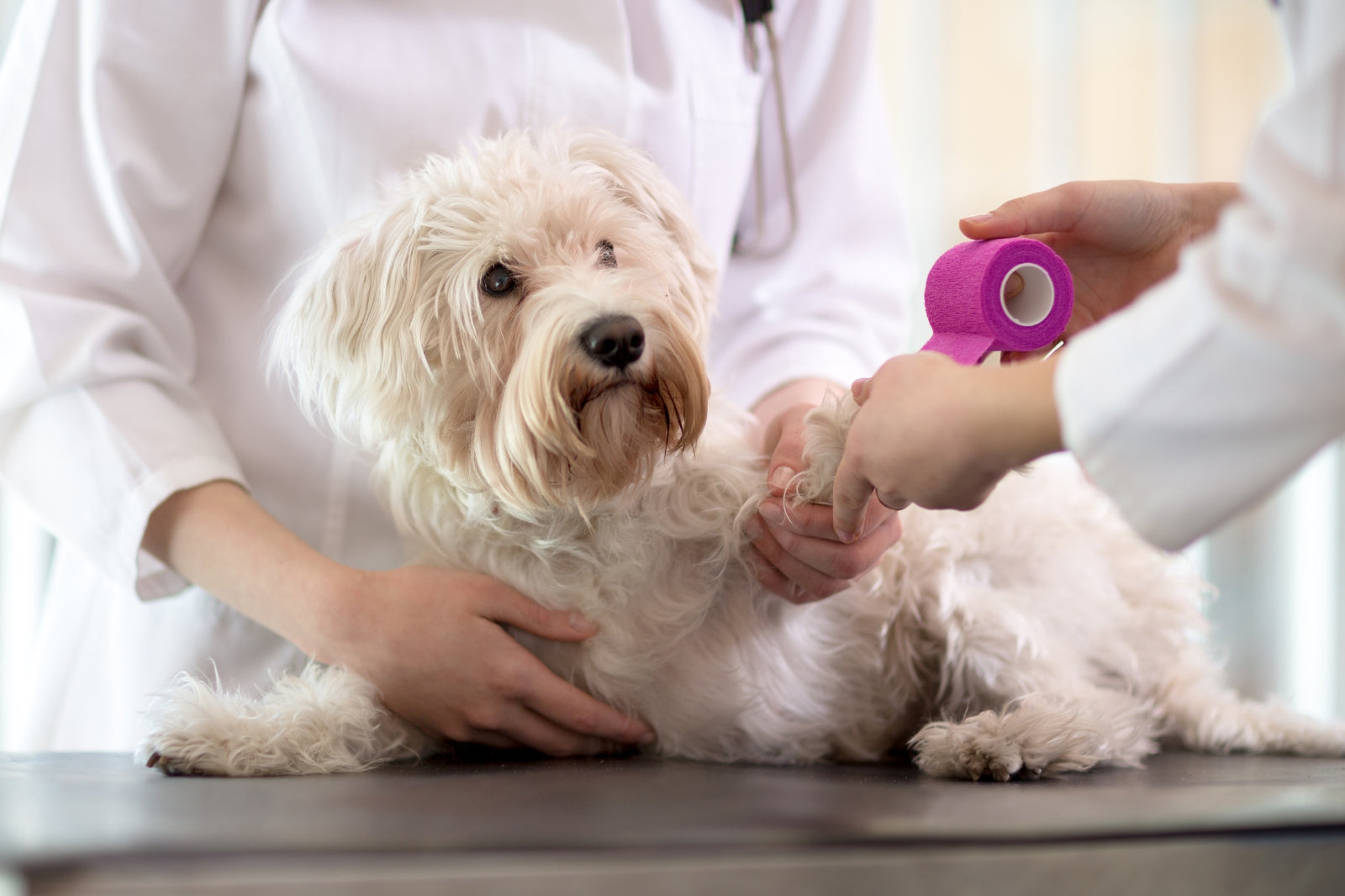Allergies are not rare and can affect all dog breeds. Find out more about the most common allergies, the symptoms and treatment options in this blog post.
What are allergies in dogs?
They occur when a dog's immune system has a hyper reaction to an external substance such as pollen, flea saliva, bee stings or some foods that wouldn't trigger any reaction in most dogs.
Some allergies are thought to be hereditary, some have an unknown cause. Most dogs show signs of an allergy in their first three years.
What are the main signs of allergies in dogs?
Watch out for signs on your dog's skin, such as itching, inflamed areas or hives. Face swelling and inflammation of the ears can also be signs of an allergy.
Watery eyes, sneezing and gastrointestinal issues are also common symptoms.
In very rare cases, a severe allergic response can cause an anaphylactic reaction which requires urgent medical care, as this can be fatal.
What are the most common types of allergies?
Food allergies
Dogs can develop a food allergy over time, which can make it hard to diagnose as they would have tolerated this food without issues before. Usually triggered by: chicken, beef, dairy, wheat, eggs, soy.
Symptoms: itchy skin, ear infections and digestive issues like vomiting or diarrhoea.
Environmental allergies
Triggered by things dogs inhale or come into contact with: pollen (trees, grasses, weeds), dust mites, mold spores, dander, perfumes or household cleaning products.
Symptoms: itchy skin, ear infections and paw licking.
Flea Allergy Dermatitis
This is an allergic reaction to flea saliva, not just the bites. A single flea bite can cause intense itching and discomfort for allergic dogs.
Symptoms: hair loss (especially at the base of the tail), red & inflamed skin and hot spots.
How to diagnose and treat a dog allergy?
If your dog displays any signs of an allergy, your vet will perform a thorough examination and enquire about your dog's history to be able to confirm the diagnosis. Some allergies are easy to determine, some others may require further allergen testing.
Most allergies are not curable but they can be controlled so that your dog's symptoms are minimal. Here are some examples:
- Flea Prevention and Anti-Parasitic Protocols: Essential for managing flea allergy dermatitis and preventing flare-ups.
- Antihistamines: Often safe and well-tolerated, but not always effective for every dog.
- Corticosteroids and Other Prescription Medications: Can provide significant relief but should be used under close veterinary supervision due to potential side effects.
- Hypoallergenic or Hydrolysed Dog Food: If a food allergy is confirmed, dietary changes are crucial. We recommend Impact+ Hydrolysed Dog Food for Skin & Coat Care, specially formulated with advanced fish Peptides to reduce itchiness, dryness and allergic reactions while promoting healthy skin and a shiny coat.
- Omega-3 Fatty Acids and Skin Supplements: Help strengthen the skin barrier and reduce inflammation caused by allergens.
- Environmental Control: Use air purifiers, vacuum frequently and consider air conditioning to reduce airborne allergens like pollen and dust mites.
- Medicated or Hypoallergenic Baths: Regular bathing helps soothe the skin and remove allergens from the coat.
- Antibiotics: May be prescribed if secondary skin infections are present due to scratching or inflammation.
It goes without saying that your vet is the best person to speak to and get a treatment plan from!




Leave a comment
This site is protected by hCaptcha and the hCaptcha Privacy Policy and Terms of Service apply.